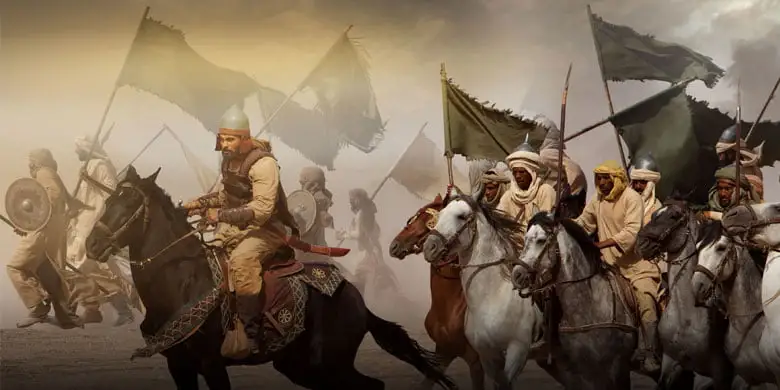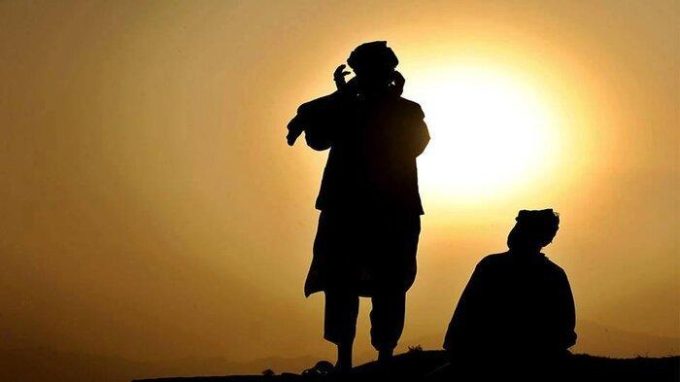The Battle of Badr and the Battle of Uhud are two major events in Islamic history that carry deep lessons for Muslims. These two wars were not just physical battles, but also became an arena for testing the faith, wisdom and sincerity of Muslims in carrying out the commands of Allah SWT. The Battle of Badr became a symbol of extraordinary victory for the materially weak Muslims, while the Battle of Uhud taught the importance of discipline and obedience to leadership.
The Battle of Badr occurred in the 2nd year of the Hijriah, when the Muslims, who were still weak and isolated, had to face a real threat from the Quraish of Mecca. The Quraysh came with 1,000 troops complete with weapons, while the Muslims only had around 313 troops with minimal equipment. However, with strong belief in Allah SWT and intelligent strategy from Rasulullah SAW, Muslims managed to win this battle. This victory not only surprised the Quraysh, but also raised the morale of the Muslim community, which had previously often been in a depressed position.
One of the great lessons from the Battle of Badr is the importance of trusting in Allah SWT. Although the Muslims were much weaker in number and strength, they continued to fight with full confidence that Allah SWT’s help would come. This victory also shows that Allah gives victory not only because of the number of troops or physical strength, but because of the faith, patience, and unity of the hearts of the Muslims. In the Qur’an, Surah Al-Anfal, verse 17, Allah reminds us that victory is not the result of human strength, but of His will.
However , the test of faith did not stop at the Battle of Badr. A year later, in the 3rd year of Hijriah, the Muslims faced the Battle of Uhud. In this war, the Quraysh came with a larger army to avenge their defeat at Badr. The Prophet Muhammad and 700 Muslim troops went out to face 3,000 Quraysh troops on the hill of Uhud. Initially, the Muslims managed to control the battlefield and push back the enemy. However, the situation turned around when some of the Muslim troops violated the Prophet’s order to remain in their strategic positions on the hill.
This disobedience became the turning point in the Battle of Uhud. The Quraysh army led by Khalid bin Walid (who had not yet converted to Islam) took advantage of this gap to counterattack, resulting in a major defeat for the Muslims. The Prophet himself was wounded in this battle, and more than 70 companions died as martyrs, including the Prophet’s uncle, Hamzah bin Abdul Muthalib. The defeat at Uhud was a painful moment for Muslims, but it also brought great wisdom.
The Battle of Uhud taught Muslims the importance of full obedience to their leaders, especially in critical situations. This war also serves as a reminder that victory is not guaranteed only through faith, but also requires discipline, patience, and submission to the established strategy. In the Qur’an, Surah Ali-Imran, verse 139, Allah comforts the Muslims by saying that they do not need to feel weak or sad, because they will remain superior if they believe in Him.
These two wars also illustrate that the struggle in the path of Allah is a process full of tests. Sometimes victory is given to strengthen faith and spirit, as happened in the Battle of Badr. However, defeat can also be a way for Allah to teach a lesson, as in the Battle of Uhud, so that Muslims continue to improve themselves and learn from the mistakes they have made.
From the Battle Badr, Muslims learned that faith and prayer can overcome all material limitations. Meanwhile, from the Battle of Uhud, the people learned that discipline, obedience, and unity are the keys to success in a common struggle. These two wars also show that the Prophet Muhammad SAW was a wise leader. , patient, and always prioritize the unity of his people, even in difficult conditions.
Another lesson that can be taken is the importance of self-introspection after facing failure. After the Battle of Uhud, the Prophet invited his companions to evaluate what had happened, without looking for scapegoats. This attitude teaches the importance of patience and maturity in the face of defeat, as well as the courage to correct mistakes. The Battle of Uhud, although it ended in defeat, became a stepping stone for Muslims to rise stronger in the following times.
Victory and defeat are part of the journey of human life, including in the struggle in the path of Allah. The Battle of Badr and Uhud are proof that struggle requires faith, hard work, and togetherness, but also humility to accept the will of Allah SWT. These two wars provide eternal lessons for Muslims, that in every victory and defeat, there is always wisdom that can be taken to get closer to Allah and improve ourselves as individuals and as a people.









Leave a comment